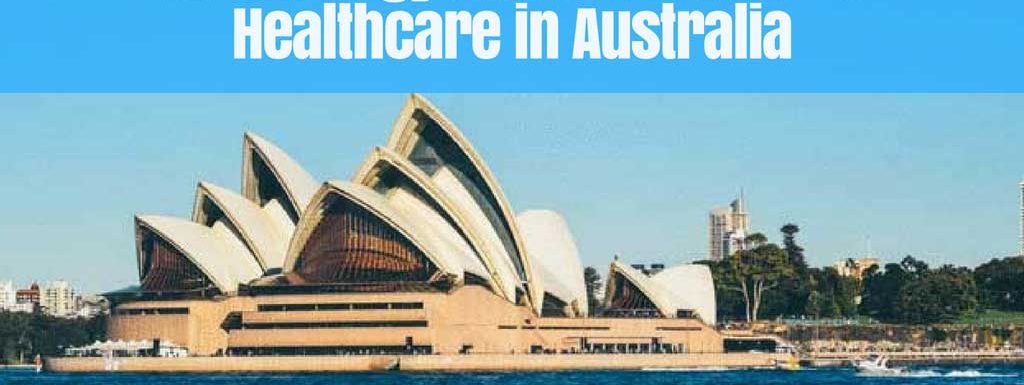The future of healthcare in Australia is among our most exciting national conversations. Oh sure, pioneers of electric cars, video games, and Virtual Reality (VR) are rightfully winning a ton of attention – but the amazing thing about healthcare’s future is it can incorporate so many emerging technologies.
Progress here can also be a tremendous ‘two for one’, not only eradicating existing illnesses, but freeing up resources for reallocation elsewhere. Overtime this means healthcare becomes more lean and agile, more adaptive to patient needs, and more responsive to future growth. While this is a very exciting time, there’s also some hurdles to clear before we get there.
Hurdle 1: Aging Population
Australia looks to the future in an era where an aging population will require more healthcare. In 1901 the median age of an Australian was 22 years old. In 2001, it was 35. That number has only trended higher since to now be 37.5. It’s great we’re all living longer, but that also means more resources must be allocated, and new solutions must be pursued in 21st century healthcare.
Fortunately, we’ve an array of new technologies on the cusp of being introduced. From the use of VR video games in our homes for therapy, to the introduction of self-driving cars (SDCs) on our roads to help seniors make easier commutes from place to place.
Proper regulation will of course be a consideration here, but there’s also the promise of better patient treatment than ever. Beyond an aging population, and the greater use of SDCs and VR, there’s two areas of growth in particular that’ll define the future of healthcare in Australia.
Hurdle 2: Introducing Blockchain Amidst Data Scandals
Of all the emerging technologies, Blockchain is the most exciting. Some nations like Estonia (population 1.316 million) have incorporated the digital ledger technology into their health system.
This is great, and kudos should be given to Estonia. Yet with 25 million in Australia a local healthcare blockchain will require the digitisation of public health to a greater scale. Making the shift from the current system will not be easy.
Even if technologically possible, many Australians already weary about their privacy in the era of Facebook and Cambridge Analytica data scandals will be nervous about the idea of processes like prescriptions being automatically sent to the mobile phone.
The great thing about blockchain is it’s not only strong but secure, and able to ensure a user’s privacy. So while ideas like a national ID card have been proposed and failed to succeed before, this is a new technology that offers Australians greater privacy – provided we clear the public debate hurdle.
Hurdle 3: The National Broadband Network
The second key issue to watch in the future of healthcare in Australia will be the growth of wi-fi and wireless lan. Right now its estimated around 88% per cent of the Australian population has regular access to the internet. This rate is pretty high comparative to other nations in the world, but there is a caveat to it. It concerns the speed and consistency of the internet access.
The much-publicised controversy surrounding the National Broadband Network (NBN) has been tumultuous for Canberra, and the Australian public. A silver lining of the NBN issues is the recognition more competition in this sphere -whether in wi-fi, wireless, managed wireless lan or beyond – could drive better affordability and innovation.
That means strong technology that produces a better online experience for all certainly, but most importantly for Aussies with the most urgent needs. The future of healthcare will delivering some inspiring progress, but it will also require technological networks that enable its best performance. Great healthcare will not be possible for long with terrible telecommunications.
We Are Running Some Tests
These issues are not insignificant, and will require the dedicated attention of skilled professionals to overcome them. Particularly because while the quest for better healthcare is a global effort, certain issues like the national regulation of blockchain and optimisation of internet speed will be uniquely Australian issues.
Put simply, it is up to us to ensure changes here are made successfully. Yet, while resting on previous laurels is never a wise idea, it’s also clear the future of Australian healthcare will be informed by its past.
In this area, the landmark historic achievements of initiatives like Medicare have been complemented in more recent times by the introduction of GP Super Clinics. While the future’s hurdles are big, there is also much room for optimism about our ability to get over them.
A Clean Bill of Health
Despite being a young country, Australia has a proud record of driving innovation and improving lives in healthcare, in our nation and around the world. From the invention of the bionic ear, to the electronic pacemaker, to spray-on skin – and even wi-fi! – for a long time we’ve long been delivering some top inventions Down Under.
If our future ambitions can harness the capabilities we have in emerging technology, then it’s certain the time ahead will be our most exciting for Australian healthcare ever. One that stands to benefit the industry as a whole, and most of all Australians on an individual level as patients.

Leave a Reply